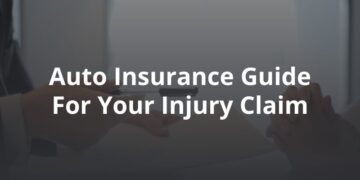Industrial workers put themselves at risk every day to keep the systems running that make sure people in the community have what they need. Heavy machinery, loud environments, extreme temperatures, and more all contribute to dangerous occupational settings faced by millions each day. Even with proper training and care on the part of employees, accidents can still happen. Read on for more information about industrial accidents and when to seek out advice from an industrial accident lawyer.
What Is an Industrial Accident?
Occupational injuries and illnesses — or injuries caused or made worse by work — affect people in all kinds of workplace settings. Before 2020, the majority of industrial accidents in Texas affected people mainly in a few distinct categories:
- Transportation and warehousing
- Manufacturing
- Arts, entertainment, and recreation
- Agriculture
- Retail trade
Overall, Texas had 49,840 nonfatal occupational injuries and illnesses reported in 2019, but that number jumped to 68,750 the first year of the COVID-19 pandemic. This same year saw the healthcare sector jump to the number one industry with reported illnesses and injuries. Still, it is pre-pandemic numbers that are staggering to consider from an industrial accident perspective.
How Do People Get Hurt in Industrial Accidents?
In 2019, the rate of industrial fatalities in Texas rose by 25 percent from the year before. The majority of reported fatal work injuries happened in the transportation sector, with Texas commercial drivers representing 23 percent of all fatal work injuries. Beyond drivers, though, there are several common industrial threats affecting people all over the state. These include:
- Lifting. The Bureau of Labor Statistics reported that over one-third of all workplace injuries that resulted in missed work were the result of lifting injuries. The biggest factors were overexertion and cumulative trauma.
- Fatigue. Work-related fatigue is extremely dangerous, not only as a leading cause of motor vehicle accidents but for manufacturing, warehousing, and virtually any other industry.
- Dehydration. Dozens of Texas workers die from heat-related injury each year, nearly doubling over the last decade. Tragically, many of those who succumb to heatstroke, dehydration, or other heat-related conditions are workers of color.
- Poor Lighting. Outdated bulbs not only provide inadequate light sources as compared to modern LED bulbs, but their illumination qualities can distort colors, making it more difficult for workers to discern color-coding on safety materials, make out objects in shadows, or react quickly to peripheral movement.
- Hazardous Materials. FEMA’s Hazardous Materials Incidents guidance notes that over half of U.S. states note that hazardous materials are a cause for concern in their workplaces. As a leading petrochemical production state, Texas is particularly impacted.
- Acts of Workplace Violence. Over 20,000 workplaces experienced workplace violence in 2019 — nearly 70 percent were women.
- Trips and Falls. Almost 1000 workers died in a fall in 2019, and nearly 250,000 were injured badly enough to need time away from work.
- Stress. Mass casualty events, workplace accidents, and the nature of the job can all cause stress to the point of injury. Research indicates that workplace trauma is more common than some might have thought.
Industrial accidents may be more common in certain industries, but they can happen to anyone. From the boom of an offshore rig to the window of a toll booth, Texans at work put their bodies in peril — often unknowingly — every day.
What Are Some Common Industrial Injuries?
Industrial accidents result in a variety of injuries. The types of injuries faced by workers, as well as the impacts on their professional and personal lives, all must be taken into account when considering compensation. These include:
- Sprains, strains, and tears. This is the most common type of work-related injury. While perhaps not as seemingly severe as some other injuries, these kinds of injuries can cause individuals to miss a considerable amount of work and lose income. They may also cause complications in the future if not properly treated and healed.
- Cuts, lacerations, and punctures. Using tools, nails, and other sharp objects in the construction trade can result in these kinds of injuries, as can any number of actions in other jobs. In the most serious cases, these wounds may require stitches, amputation, surgery, or other interventions and could cause complications like infection.
- Fractures and broken bones. Falls are one of the most frequent causes of accidents in the construction industry, often causing fractures and breaks. Falls are also common in chemical plants and on oil rigs, as well as in power line work. The treatment for these types of injuries and their impact on your ability to work can vary greatly depending on how serious your injury is and how it affects your mobility and health. A minor fracture may heal within weeks, but a severe spinal fracture may cause loss of mobility, lifelong pain, or even paralysis.
- Eye injuries. One of the most common causes of workplace injury is exposure to harmful substances. Mishandling of hazardous chemicals and dangerous tools can result in harm to the eyes, in addition to other injuries, which can cause permanent partial or total blindness. Compromised vision has a significant impact on an individual’s ability to go about their daily lives and perform usual work duties, which usually translates to additional compensation in a construction accident case.
- Burns and electrocutions. Third- and fourth-degree burns typically require surgery, skin grafts, or other invasive treatments and may come with complications such as blood loss, infection, shock, tetanus, or even hypothermia. Needless to say, these kinds of injuries usually dictate intensive medical care and may greatly affect an individual’s livelihood and quality of life.
- Spinal cord injuries. Although less common than other injuries, spinal cord damage is typically very serious when it does happen. Damage or compression to the nerves and vertebrae of the spine can cause extreme pain, loss of function, weakness, numbness, and tingling. Those with spinal cord injuries usually require long-term care, extensive medical treatment, and physical therapy, all of which can negatively affect one’s financial health. Additionally, a seriously injured individual may never be able to return to work and may suffer pain, emotional distress, loss of quality of life, and other intangible losses.
- Traumatic brain injuries. TBIs occur when the brain is suddenly damaged, such as after being struck by a falling object. TBIs generally affect a person’s life completely and permanently, causing cognitive issues, mobility problems, functional impairment, personality changes, seizures, and other serious issues.
No matter the kind of injury, everyone has a right to feel safe at work and to be able to trust that their risk is minimal. When an employer has not taken every step to ensure the safety of their employees, you should have a right to explore if they crossed a legal line.
What Happens After an Industrial Accident?
Even a single injury sustained in any kind of industrial accident carries just as much weight for the individual who is injured as does a tragic oil rig accident or building collapse. If your injury was the result of someone else’s careless or reckless behavior, and you can prove it, you may have a valid personal injury claim — even if you think that workers’ compensation makes you ineligible. You must be able to prove the following:
- Reasonable duty. Most employers and other entitties are required to adhere to various safety protocols and regulatory oversight. This is their reasonable duty.
- Breach of duty. When an entity fails to follow safety protocols, regulations, or other reasonable responsibilities, this could be a breach of duty.
- Resulting injury. Documented injuries must be present to proceed with an injury case. Injuries can be physical or psychological, and they can happen over time or because of an accident.
- Injury caused by breach of duty. A personal injury case will require you to show that the failure of your employer or other entity caused your injury. This is where an experienced investigative team is crucial — companies will go to great lengths to disguise their role or find loopholes that allow them to avoid liability.
The average on-the-job injury cost between $40,000 and $1 million in 2019. Our Austin industrial accident lawyers can review your specific situation and advise you on whether you have enough evidence to pursue a case against the negligent party to recover some of the costs to you — whether we end up representing you in your case or not.
Can I Sue My Employer for an On-the-Job Injury?
Whether or not you can or should file a personal injury claim is determined by the unique circumstances of your situation and your desired outcome. Some factors that may impact either your decision to pursue a case or the amount of your compensation are:
- A workers’ compensation policy. The state of Texas does not require private employers to purchase workers’ comp, but many large employers have some sort of policy or self-insure. On the other hand, if your company has government contracts for its products, it is required to have a policy. Once you file a workers’ comp claim, you are waiving your rights to file a lawsuit in most scenarios; however, the state constitution does identify an exception in the case of gross negligence.
- A track record of unsafe practices. One of the determining factors of gross negligence may turn out to be whether or not unsafe practices are a pattern of behavior. For example, one of DuPont’s plants was listed as a violator after several violations, including a supply line failure that released 20,000 pounds of methyl mercaptan, killing four employees.
- The number of responsible parties. In many industrial accidents, not just one person or entity is responsible for your injury. When multiple parties are involved or there is an issue of respondeat superior — or vicarious liability — the case can get much more complicated.
- Impact on your future earnings. Even seemingly minor injuries can impact your ability to do the job you have been trained to do. A wrist fracture, for example, can lead to life-long carpal tunnel syndrome, impacting your ability to operate machinery, drive, or even perform administrative duties.
In our experience, most employers do not want to take all the blame for injuries. This means that their insurance companies can fight hard to avoid paying out what a client’s recovery may actually cost. Still, laws around workplace injuries have loopholes and exemptions, and an experienced injury attorney will know where to look at how to best use the laws and regulations to stand up for you.
How Can FVF help?
Our case consultations are always at no cost to you. A personal injury lawyer can help you explore options for paying the mounting medical bills and other expenses associated with your injuries, even if insurance is trying to avoid paying full value. These factors might include:
- Loss of earnings
- Loss of future earnings
- Medical bills
- Cost of future medical care
- Household expenses
- Pain and suffering
- Mental anguish
- Loss of consortium or companionship
FVF’s goal for your first conversation with us is that you walk away feeling more informed and empowered to make decisions about the future of your case. You can always count on this first conversation happening at no cost to you because we believe education and advocacy are the greatest tools we can offer people who have been injured. We will make sure you understand that we take cases only if we believe that our involvement will add value to your claim, and because we work on a contingency basis, you will always know what to expect about our fees.
Contact us today to schedule your free consultation. Together, we can discuss the steps you can take toward recovery.





